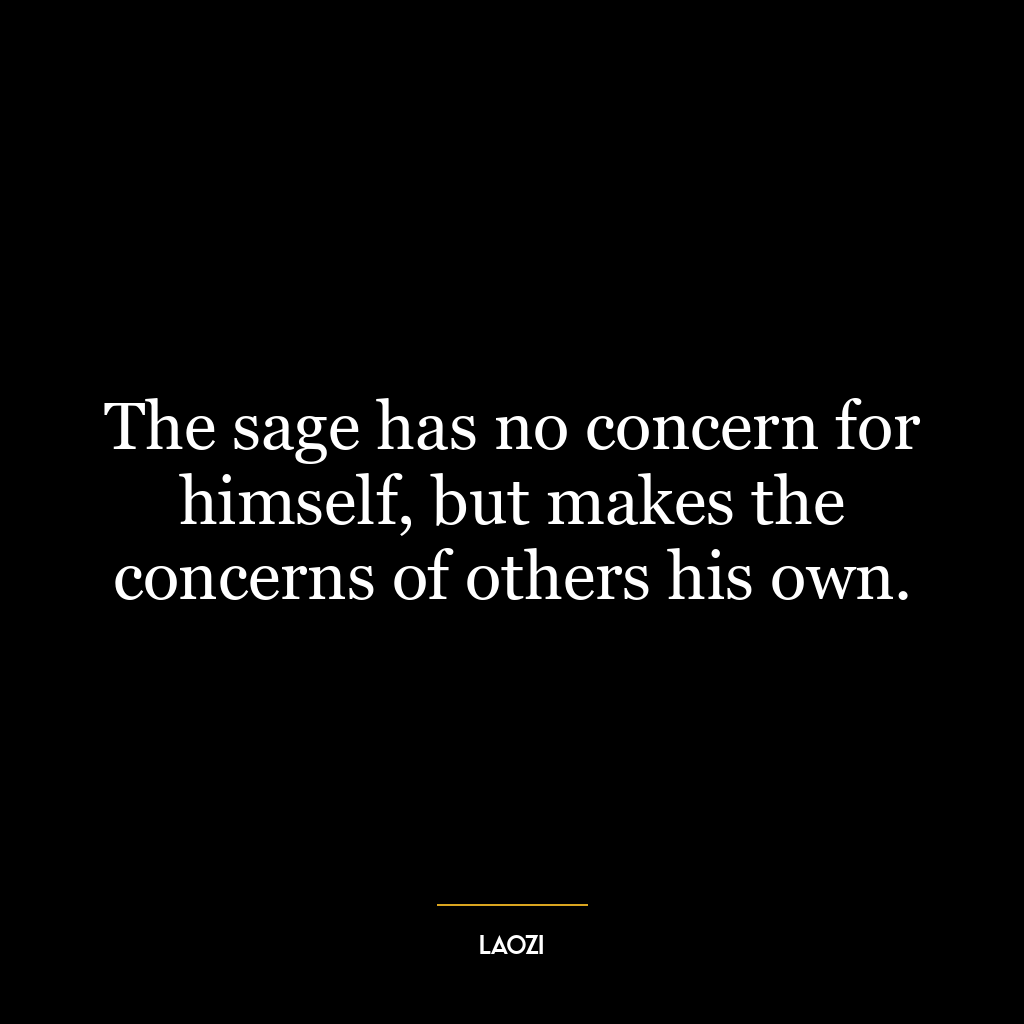The sage has no concern for himself, but makes the concerns of others his own.
This quote, “The sage has no concern for himself, but makes the concerns of others his own,” essentially encapsulates the essence of selflessness and empathy. The sage, a figure of wisdom and enlightenment, is described as having no personal concerns, not because he is indifferent or detached, but because he has transcended personal desires and worries. Instead, he is deeply invested in the concerns of others, indicating a profound level of empathy and understanding.
The sage’s actions reflect a deep sense of altruism, where the well-being of others is placed before self-interest. This is not to suggest that the sage neglects his own needs, but rather that he does not view his concerns as separate from those of others. This interconnectedness is at the heart of the sage’s wisdom. He understands that by helping others, he is also helping himself, as we are all part of a larger, interconnected whole.
Applying this idea in today’s world or in personal development can be transformative. It suggests that true wisdom and fulfillment come not from focusing on our own needs and desires, but from turning our attention and care towards others. This could mean volunteering our time, lending a listening ear, or simply being more understanding and compassionate in our daily interactions.
In the realm of personal development, this idea encourages us to shift our focus from self-centered goals to more altruistic ones. Instead of striving for personal success, wealth, or recognition, we might aim to make a positive impact on the lives of others. This could lead to a deeper sense of purpose and fulfillment, as we find that our own well-being is intrinsically linked to the well-being of others.
In the broader societal context, this quote implies that a truly enlightened society is one where individuals care for each other’s concerns as their own. This could translate into policies that prioritize collective well-being over individual gain, or communities where people actively support and care for one another. In a world where individualism often takes precedence, this quote serves as a reminder of the value of empathy, altruism, and communal harmony.















